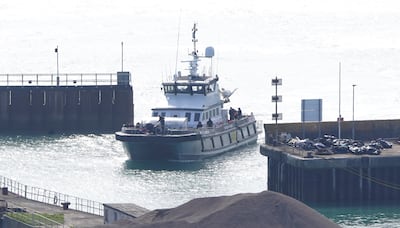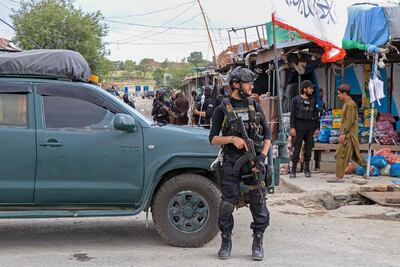The UK and Europe have been handed low marks by charities for their efforts to resettle vulnerable Afghans, two years to the day since the Taliban seized power.
One report said only 329 Afghans have been relocated to the EU since 2021, leaving thousands of others “stuck in limbo”.
In Britain, activists said there were “significant delays” in a “convoluted application process” and that “many Afghan families have been let down” once they arrived.
A UK minister promised to make resettlement schemes “work properly”.
Thousands of people including diplomats, troops and Afghan staff were evacuated in the frantic days after the Taliban’s capture of Kabul on August 15, 2021.
In subsequent months, several western countries announced more structured ways for particularly vulnerable Afghans – such as women’s rights activists and religious minorities – to move to safety.
But some of these schemes have “yet to materialise to scale, leaving thousands of people stuck in limbo”, said Harlem Desir, a former French minister and a vice president of the International Rescue Committee.
A lack of safe routes “drives people to take greater risks” and it should “come as no surprise” that many people trying to enter the EU via the Balkans are from Afghanistan, he said.
Six Afghans died on Saturday after their small boat capsized in the English Channel, the latest in a series of fatal incidents involving unauthorised migrants in Europe.

A report by human rights group Justice said only 54 people have been relocated to Britain under schemes for vulnerable Afghans with little or no link to the UK.
Another 15,000 Afghans, including some who worked for the British Army as interpreters, were flown to the UK during the airlift but thousands are still living in government-funded hotels.
The airlift in 2021 “was an emergency response to an emergency situation, and was undoubtedly the right thing to do, but the crisis goes on”, immigration lawyer Sonali Naik said in a foreword to the report.
She said long delays for those still in Afghanistan could become a “self-fulfilling prophecy”, if people waiting years for a decision do not appear in acute danger and “government urgency drains away”.
“Despite promises to help Afghans relocate, there remain significant delays, lack of transparency, and lack of consistency to government decision-making,” the Justice report said.
It said the “convoluted application process” sometimes involved forcing people to travel to third countries such as Pakistan for biometrics and visas, bringing a “significant risk to the lives of applicants”.
Germany suspended a resettlement scheme for vulnerable Afghans in March, after suspected extremists applied for visas. Future applicants will face tougher checks including a screening interview.
A spokesman for the interior ministry in Berlin said about 350 people had been approved for relocation from Afghanistan, but could not say whether any of them had yet arrived in Germany.
About 30,000 Afghans came to Germany either as part of the airlift or during the preceding months, as Nato members were withdrawing troops from Afghanistan.

Citing UN data, the International Rescue Committee said only 329 people had been resettled in four EU countries in the past two years. These included 296 in Sweden, 21 in Finland, nine in Spain and three in France.
EU leaders “need to immediately ramp up resettlement of Afghans” if they are to “come anywhere close” to hitting a UN target of resettling 42,500 people by 2026, Mr Desir said.
Some Afghans who did make it to Britain saw offers of jobs and housing fall through because of government inefficiency, according to a separate report by More in Common.
Afghans surveyed by the organisation reported “repeated rejection of applications, and unsuitable offers of accommodation being made – either not taking into account job prospects or in areas hundreds of miles away”.
The report said what was billed by government ministers as Operation Warm Welcome had “not lived up to its potential” or matched the “British public’s generosity of spirit”.
Cabinet Office minister Johnny Mercer, a former British soldier who served in Afghanistan, acknowledged there were “challenges” with resettlement schemes.
Mr Mercer told PA he was “very clear, from a personal perspective, as to what we owe these people” and “determined that this government will get it right when it comes to what we owe these people”.
He said it was “never the intention” for refugees to be housed in hotels that were “clearly not long-term accommodation options for Afghans and their families”.
“There's been a long-standing challenge around housing in this country and that's collided with the reality of a very quick collapse in Afghanistan,” he said.
“And we've ended up where we've ended up, with Afghan families in hotels for far too long. So, look, things could always have been done differently.”









